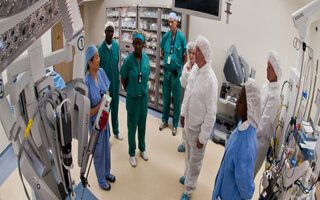Global Cooperation and Social Cohesion
Markets are essential institutions to promote economic growth and to maximize individual welfare. Nevertheless, markets are thwarted by two fundamental issues. First, markets fail to provide efficient allocation of resources in the numerous instances of externalities between individuals and states. Such failures are particularly evident in global domains where property rights cannot be properly defined. Also biased individual decision making often impair the functioning of markets, in particular in the financial sector. Climate change, vaccines to combat global pandemics, financial stability, are all instances in which some forms of cooperation – among both individuals and states – is needed to overcome market failures. Second, even when they are fully functioning, unbridled markets can create large inequalities among individuals. Stagnating or dwindling incomes for the lower brackets of the income distribution undermine social cohesion, because large cohorts of the population now feel to have been decoupled from social progress.
The goal of our Research Group is to (1) understand how to foster global cooperation; (2) identify the root causes undermining social cohesion; (3) develop cutting-edge measurements of wellbeing with a particular focus on health outcomes; (4) propose solutions for the optimal management of collective risks, both socially and individually; (5) analyse the complex dynamic between ethical principles and market functioning. Our modus operandi rests on the belief that understanding individual behaviour is essential to solve complex problems, especially those occurring at the global level, also safeguarding individual wellbeing. Therefore, cutting-edge findings from the behavioural social sciences inform all our work. Our research is both foundational, in aiming to unveil basic tenets of human behaviour, and applied to several domains that are relevant for global cooperation and social cohesion. Central topics here are the global health economy as well as measures against climate change. Further work includes the consequences of income inequality, attitudes towards migrants as well as trust in governance.





















